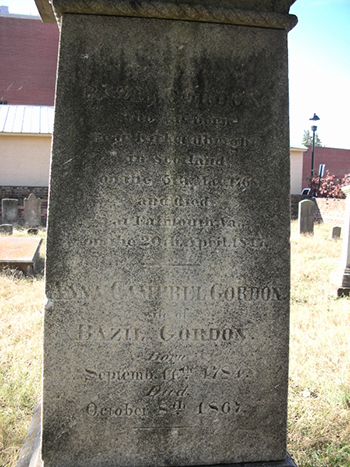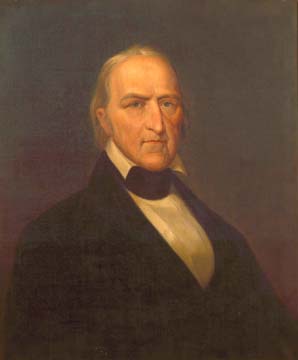
Bazil Gordon is known for supporting the 2nd church throught the gift of the font (still used today) and for purchasing a pew. He was not only a prosperous merchant in Falmouth in the import export trade, but has said to be the first millionaire in America by the time he dies
Gordon was born in Scotland, son of Samuel Gordon of Lochdougan, Scotland. With two of his brothers Samuel and Alexander and a nephew (also Samuel ) he came to America and settled in Falmouth in 1786. He may have worshiped in the first church but definitely in the 2nd church.
Gordon started a small store in Falmouth, which grew into a large importing and exporting enterprise. Large quantities of tobacco from the plantations along the Rappahannock River were exported to England.
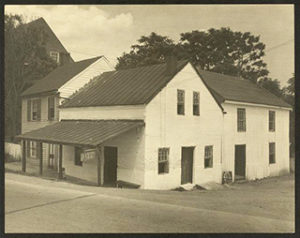
His warehouse was photographed by Frances Benjamin Johnston in 1927 on her trip to Fredericksburg. The building may go back to 1727 and possibly may have been owned by Robert “King” Carter”, the first president of the Falmouth town government.
The brothers’ fortunes were made in large part by taking advantage of the war between England and Spain, where they purchased and exported tobacco. He would soon purchase Wakefield Manor in Rappahannock County Virginia where Gordon and his wife Anne would raise their children. Kenmore eventually owned by his brother, asserts he did extremely well in his business and is believed to have been America’s first millionaire by virtue of his accounting records.
The Virginia Herald through advertisement documents his merchant life from approximately 1797 to 1819. The items that he bought and sold can be divided into 4 types:
1. Home items – Queenware (china), pewter,tobacco, hats
2. Clothes – kersey, flannel, cotton
3. Food items – rum, sugar, coffee, cheese, wines, salt
4. Farm -saddlery
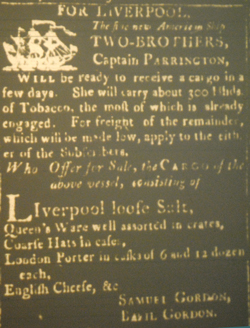

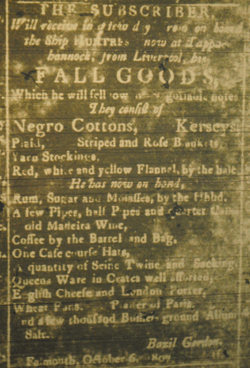
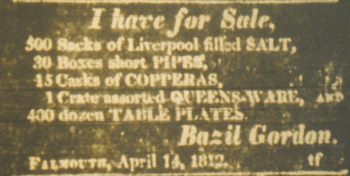
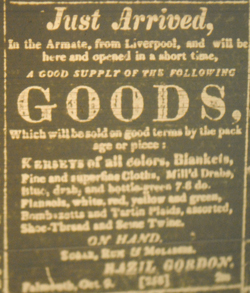
The Virginia Historical Society has his account book from 1839-1840 and runs several hundred pages.
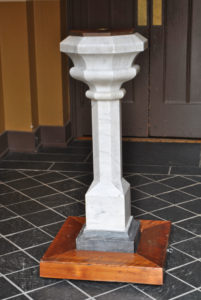
We know of two relationships with St. George’s. Quenzel assets he gave the baptismal font in 1829. He purchased a pew for $260 in the 2nd church, the 3rd highest priced pew. Our Vestry minutes during the time he lived were destroyed in Richmond in 1865.
All three of the Gordons married sisters, who were the daughters of William Knox of Culpeper County, VA and Susannah Stuart Fitzhugh (a great granddaughter of Colonel William Fitz Hugh, who came from Bedford, England in 1670). Knox family line extended back to John Knox, the Protestant leader. Bazil Gordon married Ann Knox in Falmouth the ceremony conducted by Rev. McGuire.
Samuel Gordon married Susannah Fitzhugh Knox in 1798 and engaged in the tobacco trade. He would abandon the merchant career for land ownership and management. According to the Kenmore chain of title, he purchased Kenmore from John and Susan Thornton in 1819. They named it “Kenmore”, which was used to name many properties and was sometimes spelled “Kenmuir. Samuel Gordon purchased a double pew for $385, the second highest priced double pew at St. George in the period. Much of his fortune was later lost through the failure of the Bank of the United States during Andrew Jackson’s administration.
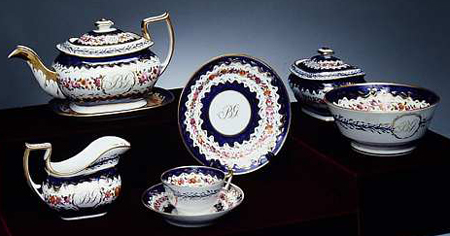
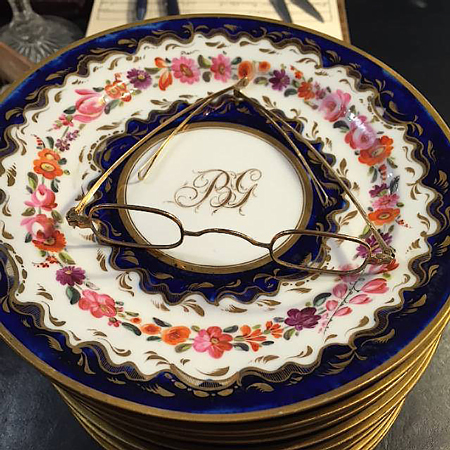
Bazil Gordon dealt in fine china and owned some. These pieces were owned by him. This service was likely made at the Coalport China Works in England, ca. 1810-1820.
Robert Howison in Fredericksburg, Past Present and Future (1898) writes of Bazil Gordon: “His adventures were nearly always successful but he owed much of his success to his native Scottish good sense, his perfectly temperate and regular habits, his self-reliance, which enabled him patiently to wait for results when he formed his plans, and his serene temper, which secured for him friends in nearly all with whom he came in contact.”
Bazil Gordon’s home is still standing from the early 1800’s in Falmouth though it has been significantly altered.
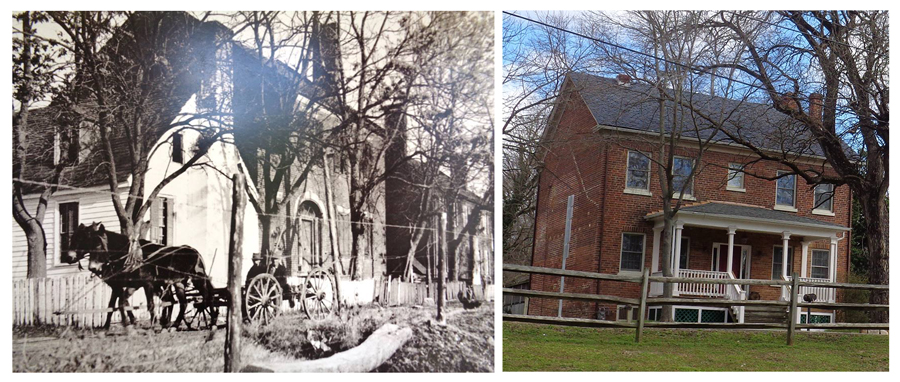
The export trade that made his wealth was declining by the late 1820’s and a group came together to encourage cotton or wool manufacturing in Nov., 1827. “Changes in the attitude both of Commerce and Agriculture have this application no long beneficial”
Demand for local exports of agriculture have been declining and there was a trade imbalance in favor of imports. They resolved to to create local manufacturing company to produce items at home previously imported.
He died in 1847 and is buried in the Masonic Cemetery.
